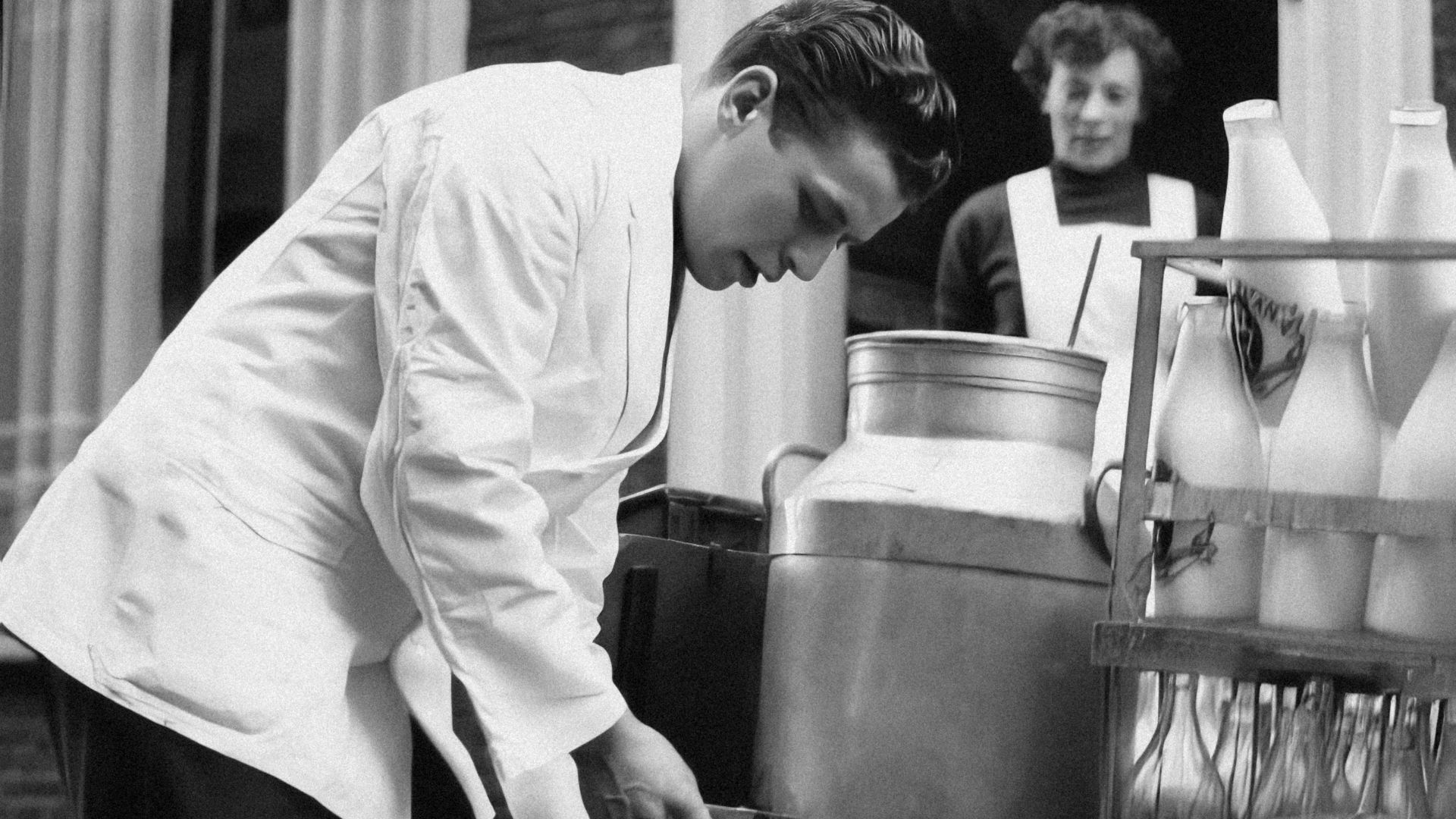Old School Americana
With machine takeovers and artificial intelligence, it seems more and more jobs are disappearing. But even in the 18th and 19th century, there were certain occupations that have vanished in the name of cutting costs and promoting big box chains.
1. Milkman
Nowadays, people just go to the store to buy their milk, but historically a milkman would make daily or weekly home deliveries. This was due to a lack of refrigeration and car ownership in the day. But now, people want this service back as it was sustainable and a great way to engage with local vendors.
2. Cobblers
Cobblers were another name for shoe repairmen, who would be responsible for cleaning and maintaining shoes and boots. This disappeared as people shifted toward fast fashion and cheap mass production, opting to replace their shoes instead of repair them. However, now people want this job back as it supported sustainability and recycling.
3. Receptionists
Not too long ago, people could call facilities or businesses and would be greeted by a receptionist that would put them in touch with who they needed to speak to. However, now all of these calls are automated, with robots answering the phones and giving people a long list of options that often make no sense. Many consumers miss talking to real people.
4. Gas Station Attendant
In some countries, gas station attendants are still a thing, but this has mostly disappeared in America. These attendants would pump gas, check oil, and even clean windshields, and were a great way to socialize and help elderly or disabled drivers. But now, to save costs, most gas stations have eliminated the practice.
 Boston Public Library on Unsplash
Boston Public Library on Unsplash
5. Bookmobile Librarian
There was a time where librarians would drive around in mobile libraries, providing access to books to rural or underserved areas. However, with budget cuts and internet access, this was discontinued. However, it’s clear to see how beneficial it was for rural outreach and education accessibility.
6. Rag-and-Bone Man
Rag-and-bone man is a fancy name for junk collectors, who would take on everything from old clothes, metal, scraps, and anything else intended for reuse or resale. This was a grassroots way of reducing waste and reusing materials, but was quickly replaced by industrial recycling and waste management systems run by municipalities.
7. Factory Worker
Nowadays, factory jobs have all been stolen by robots and machines. But before this, it was typical for unionized workers to handle assembly lines in a variety of factories from automotive to steel to textile. This was a simple job that involved steady and defined work with solid wages and benefits before disappearing.
8. Piano Tuners
Piano tuners were responsible for adjusting piano strings to ensure instrument sound quality and maintenance. However, fewer and fewer people utilize acoustic pianos these days, and this job represents a level of artistry that has been lost to time.
9. Film Projectionist
Before digital projection replaced physical film reels, these projectionists were responsible for managing projectors and supporting in-theater movie screenings. People miss this work as it was an innate part of the vintage cinema experience, and many purist film lovers lament its loss.
10. Town Crier
Back in the day, instead of getting your news from a paper or online, a crier would publicly announce what was happening to help spread media. This disappeared when radio and digital media replaced it, but now people feel very overloaded and miss the limited community-based information they could rely on.
 Birmingham Museums Trust on Unsplash
Birmingham Museums Trust on Unsplash
11. Street Sweeper
There was a time where people would be hired to clean the streets by hand, being innately responsible for community appearance. However, now machines have replaced this task, with volunteers being relied on to pick up litter. However, if street sweepers would start up again, this would provide both cleanliness and job opportunities for many.
12. Train Porter
A train porter would be responsible for helping rail passengers with their luggage and seating, and was a cornerstone of luxury train travel. However, this disappeared as passengers in U.S. railways began to decline due to competition with air travel.
 Museums of History New South Wales on Unsplash
Museums of History New South Wales on Unsplash
13. Typesetter
Typesetters, also known as print shop workers, were responsible for manually setting type for everything ranging from books to newspapers. But now, digital publishing and automation have taken over this task, despite many missing the old printing craft and its vintage appeal.
14. Blacksmith
These days, if you require a tool, you have to buy a mass-manufactured one from a big box store. But before, a specialist would be responsible for forging tools to your specifications. Many people miss the independent nature of this work and how it allowed a level of customizability.
15. Apothecary
Nowadays, if you require medicine, you would have to go to a pharmacy or a superstore to pick something off the counter. But there were times where apothecaries would prepare custom mixtures and rely on herbal medicine to support holistic health.
16. Telegraph Operator
There was a time where people would send and receive messages through telegraphy, but this was quickly replaced by phones, faxes, and of course, the internet. However, many people still romanticize this method of messaging, and remember how it made communication feel intentional and important, instead of shallow and forgettable.
17. Wet Nurse
Having a baby is hard enough, but wet nurses would support mothers by caring for infants on behalf of the family. But nowadays, mothers have to rely on formula feeding if they’re unable to feed their kids, with some missing the holistic and natural benefits of parenting circles.
18. Tinkerer
Tinkerer was a name for a traveling repair person who would go around offering their services. They would repair everything from pots to pans, and many see this as a great way to support anti-waste and sustainable living practices. But now, others rely on cheap goods that they simply throw away and replace when needed.
19. Switchboard Operators
Switchboard operators were cornerstones of small-town charm, and would be responsible for manually connecting phones at a central switchboard. However, with automated phone systems, this isn’t needed anymore.
20. Elevator Operator
Only the fanciest buildings seem to have this, but there was a time where elevators would be operated manually by people who would also provide directions and a level of customer service. Now, to cut costs, many buildings rely on automation. But some people want this back as it not only added a level of human interaction, but also promoted safety.
KEEP ON READING
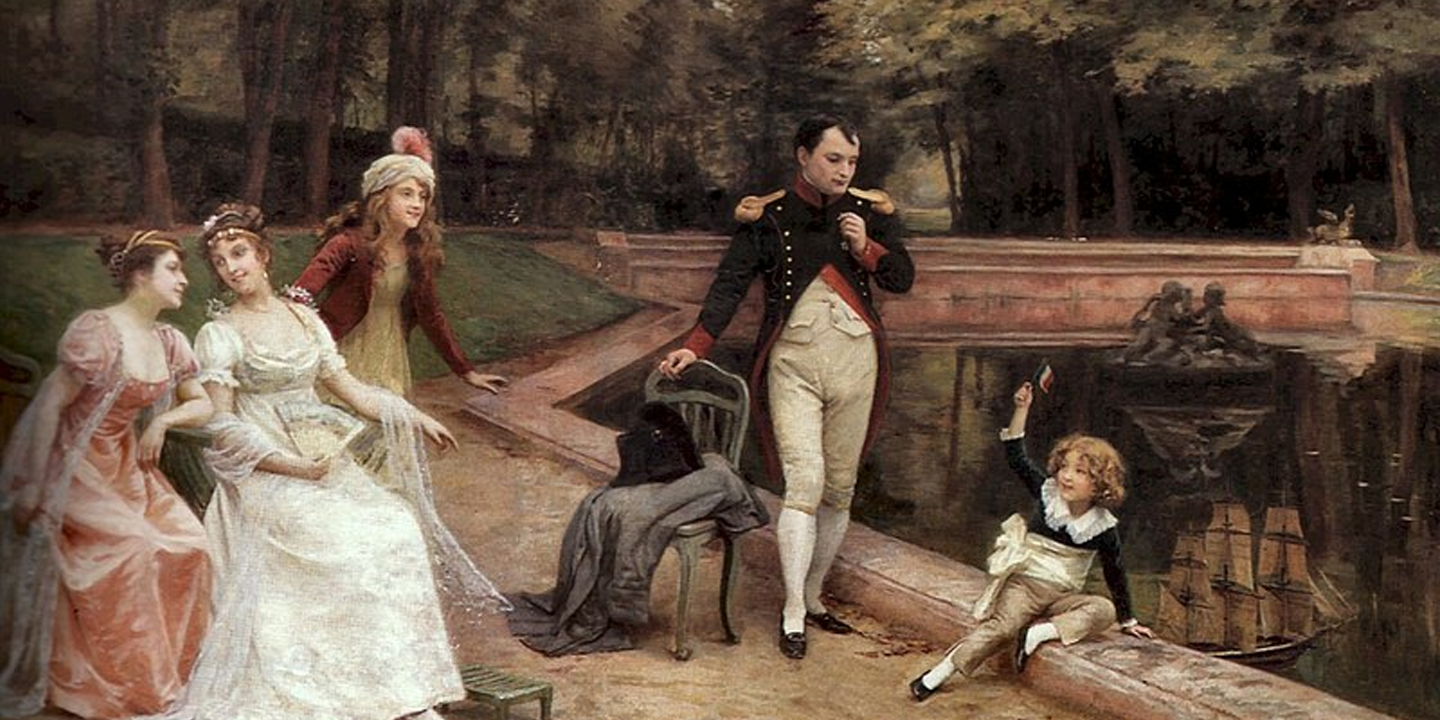
The 20 Most Recognized Historical Figures Of All Time
The Biggest Names In History. Although the Earth has been…
By Cathy Liu Oct 4, 2024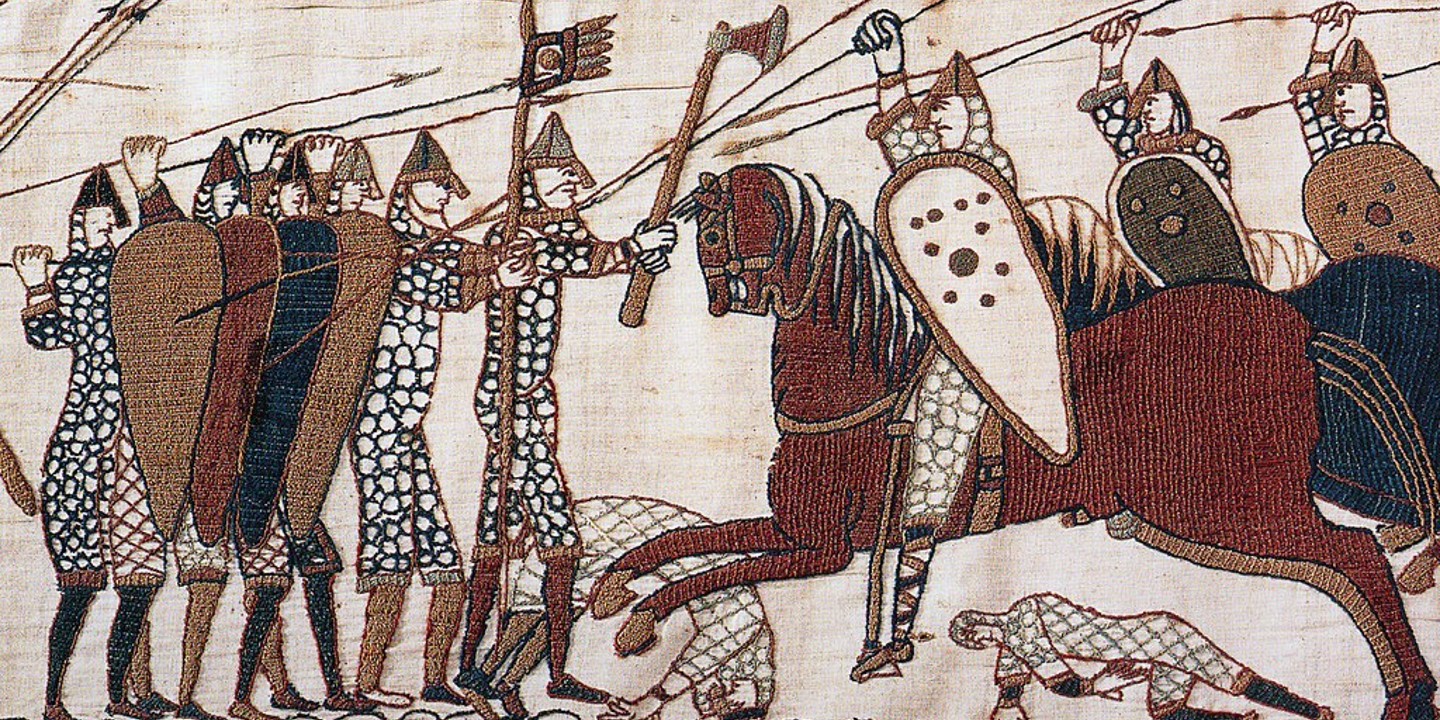
10 of the Shortest Wars in History & 10 of…
Wars: Longest and Shortest. Throughout history, wars have varied dramatically…
By Emilie Richardson-Dupuis Oct 7, 2024
10 Fascinating Facts About Ancient Greece You Can Appreciate &…
Once Upon A Time Lived Some Ancient Weirdos.... Greece is…
By Megan Wickens Oct 7, 2024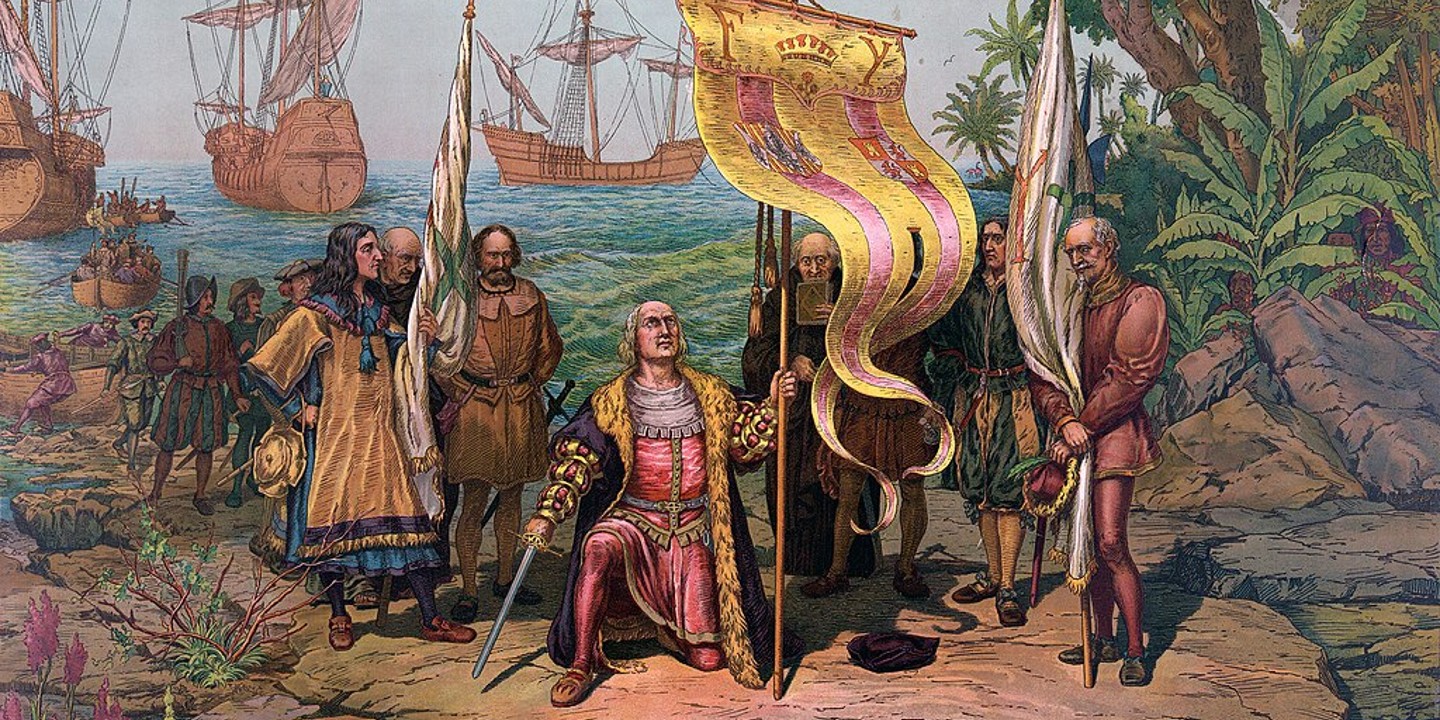
20 Lesser-Known Facts About Christopher Columbus You Don't Learn In…
In 1492, He Sailed The Ocean Blue. Christopher Columbus is…
By Emilie Richardson-Dupuis Oct 9, 2024
20 Historical Landmarks That Have The Craziest Conspiracy Theories
Unsolved Mysteries Of Ancient Places . When there's not enough evidence…
By Megan Wickens Oct 9, 2024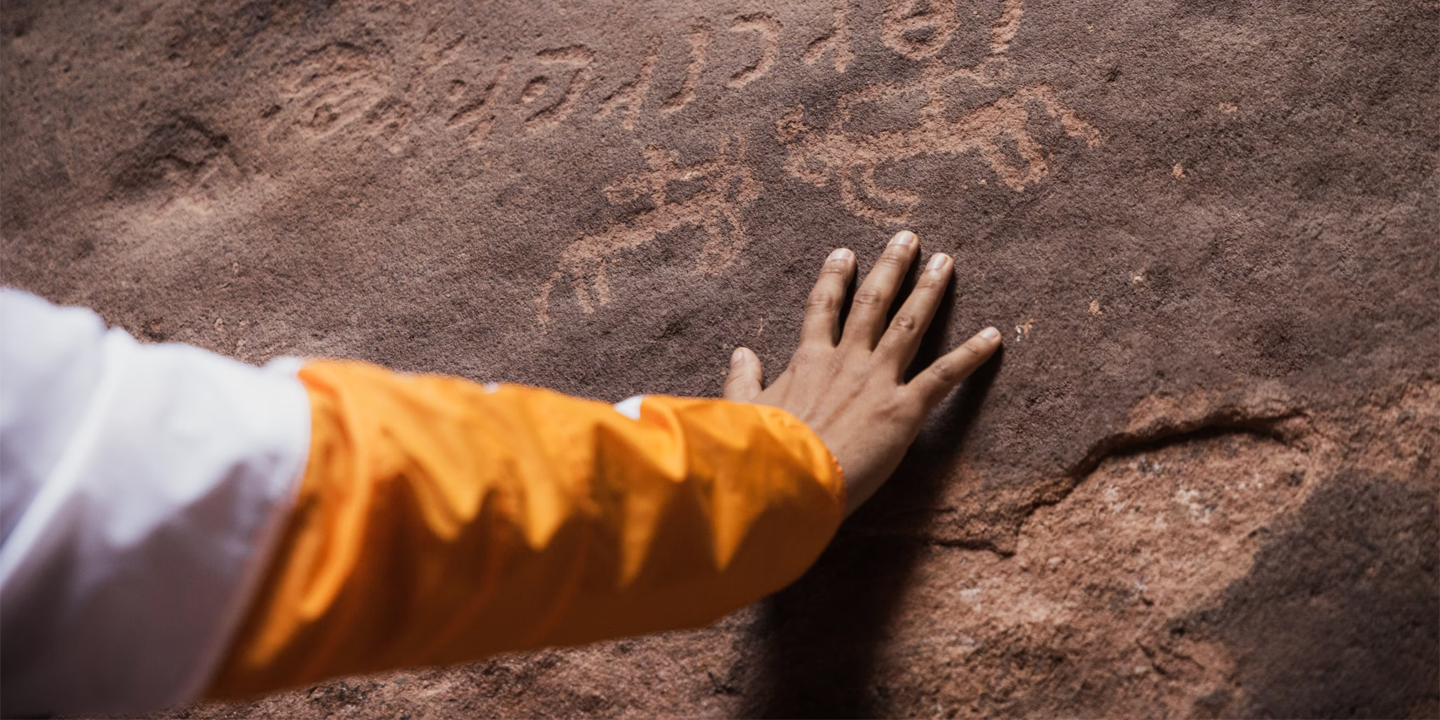
The 20 Craziest Inventions & Discoveries Made During Ancient Times
Crazy Ancient Inventions . While we're busy making big advancements in…
By Cathy Liu Oct 9, 2024


